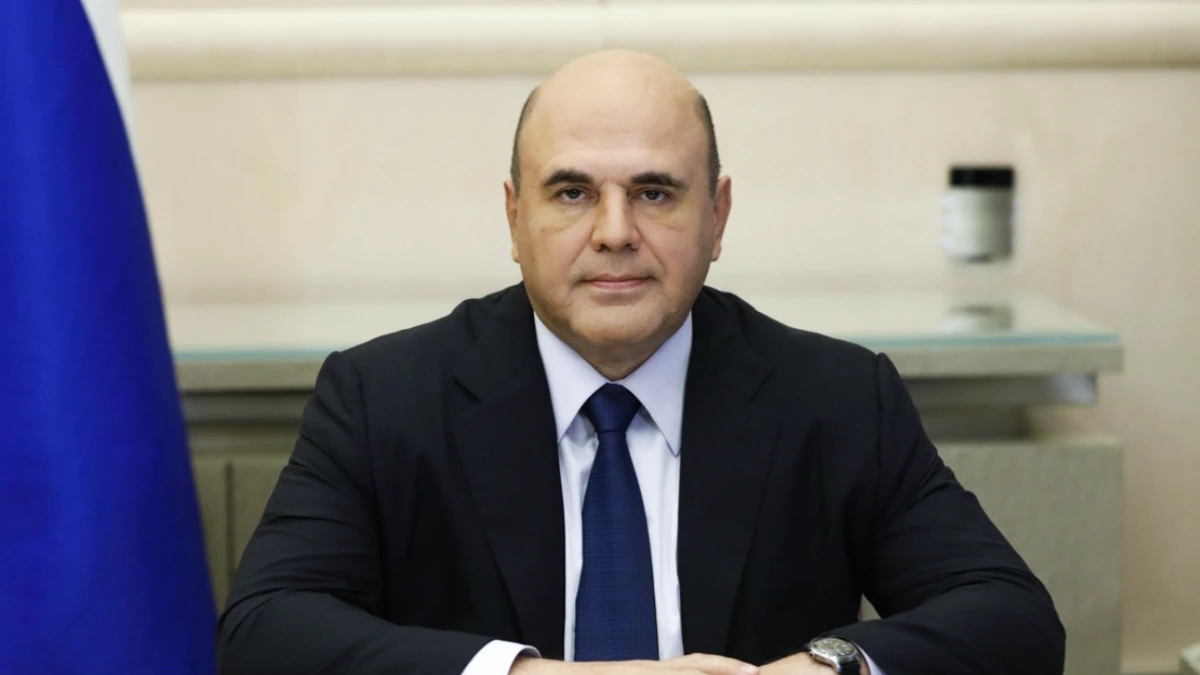MOSCOW — Russian Prime Minister Mikhail Mishustin began a two day visit to China on Monday, underscoring growing efforts by Moscow and Beijing to deepen their economic and technological cooperation despite sustained Western sanctions and global trade headwinds.
The Kremlin described the visit as “very important,” with Mishustin expected to meet Chinese President Xi Jinping and Premier Li Qiang in Hangzhou and Beijing for high-level discussions aimed at strengthening trade, energy, and industrial partnerships.
The trip marks the latest in a series of diplomatic exchanges between Moscow and Beijing since the two nations announced a “no limits” partnership in February 2022, shortly before Russia’s invasion of Ukraine.
That agreement has served as the cornerstone of their strategic alignment against what both governments view as Western economic and political pressure.
Mishustin’s meeting with Li in Hangzhou on Monday precedes talks with Xi in Beijing on Tuesday, according to the Russian government’s press office.
The last heads of government session was held in Moscow in August 2024, where both sides praised the “new vigor” in their relationship.
Russia and China are entering a new phase of practical cooperation, Kremlin spokesperson Dmitry Peskov said last week. “This visit carries very great significance for our shared long term interests.”
The partnership between the two powers has expanded across multiple sectors, including energy, manufacturing, and digital technology. However, declining trade figures suggest emerging challenges.
China’s exports to Russia in September fell 21 percent year over year the sharpest drop in seven months while its imports from Russia rose 3.8 percent after a steep contraction the previous month, according to Chinese customs data.
Analysts say the visit signals Russia’s intent to shift its relationship with China from short term trade dependency toward a broader framework centered on industrial and technological resilience.
Russia understands that selling raw materials is not enough to sustain the partnership, said Elena Ivanova, a senior analyst at the Eurasia Economic Forum in Brussels.
“Moscow wants deeper collaboration in advanced technology, transportation infrastructure, and manufacturing. These sectors are less vulnerable to the fluctuations of global commodity markets.”
Chinese foreign policy experts echo that sentiment. “China values Russia as a strategic partner in regional stability and resource cooperation,” said Zhang Wei, a professor of international relations at Tsinghua University.
“But Beijing also seeks balanced trade and innovation based partnerships to avoid overreliance on any single sector.” The talks are expected to include proposals for expanding cross border industrial parks, enhancing yuan based settlements in trade, and creating new technology exchange platforms.
Despite an overall slowdown, Russia China trade remains near record levels. According to official statistics, bilateral trade exceeded $220 billion in 2024 a figure that Moscow and Beijing have vowed to raise to $250 billion by 2025.
Chinese exports to Russia fell 21% in September 2025 year on year. Chinese imports from Russia rose 3.8% during the same month. Energy exports, particularly oil and gas, accounted for more than two thirds of Russia’s total exports to China.
Technology related cooperation including joint work on digital infrastructure, drones, and AI manufacturing has grown by nearly 30% in the past year, according to Russian industry estimates.
Anton Alikhanov, Russia’s Industry and Trade Minister, attributed the recent trade dip to “external economic pressures” and “market saturation” of Chinese goods.
“Our long term goal is diversification not just trading goods, but building industries together,” he told Russian media on Friday. On the streets of Moscow, the focus on China is seen as a pragmatic necessity.
European markets are closed to us, so China is our natural alternative, said Pavel Sergeyev, a machinery exporter based in St. Petersburg. But we need more than just selling oil we need technology and investment.
In Hangzhou, business leaders are also watching the talks closely. “Russian energy and agriculture are important to China’s stability,” said Li Qiang, a regional logistics manager.
If both sides simplify customs and expand digital trade links, it could be a win win for small businesses. Ordinary citizens, however, remain cautiously optimistic.
“These big meetings always sound promising,” said Marina Kolesnikova, a teacher in Vladivostok. “But people here want to see real change better jobs, more affordable goods, and fewer bureaucratic delays.”
Mishustin’s talks are expected to produce agreements on trade facilitation, industrial development, and cross border logistics.
Russian officials have hinted at new projects in energy and agriculture, along with plans to increase the use of local currencies in settlements to reduce reliance on the US dollar.
Analysts suggest the outcomes may shape how both nations navigate global economic realignments. “For Russia, China is a strategic outlet amid sanctions,” said Andrey Petrov, a Moscow based economist.
“For China, the challenge is balancing cooperation with Moscow while maintaining stable relations with Western markets.” The Hangzhou and Beijing meetings also come as global supply chains face rising geopolitical tensions.
Both sides are expected to emphasize “mutual respect and non interference” as guiding principles in their cooperation frameworks.
Mikhail Mishustin’s visit to China underscores Moscow’s determination to fortify its alliance with Beijing as economic pressures mount.
The focus on industrial, technological, and energy cooperation signals a bid for long term stability in a shifting global order.
Whether this diplomatic mission delivers tangible results or remains symbolic will depend on how effectively both governments translate their rhetoric into sustained, mutually beneficial partnerships.
